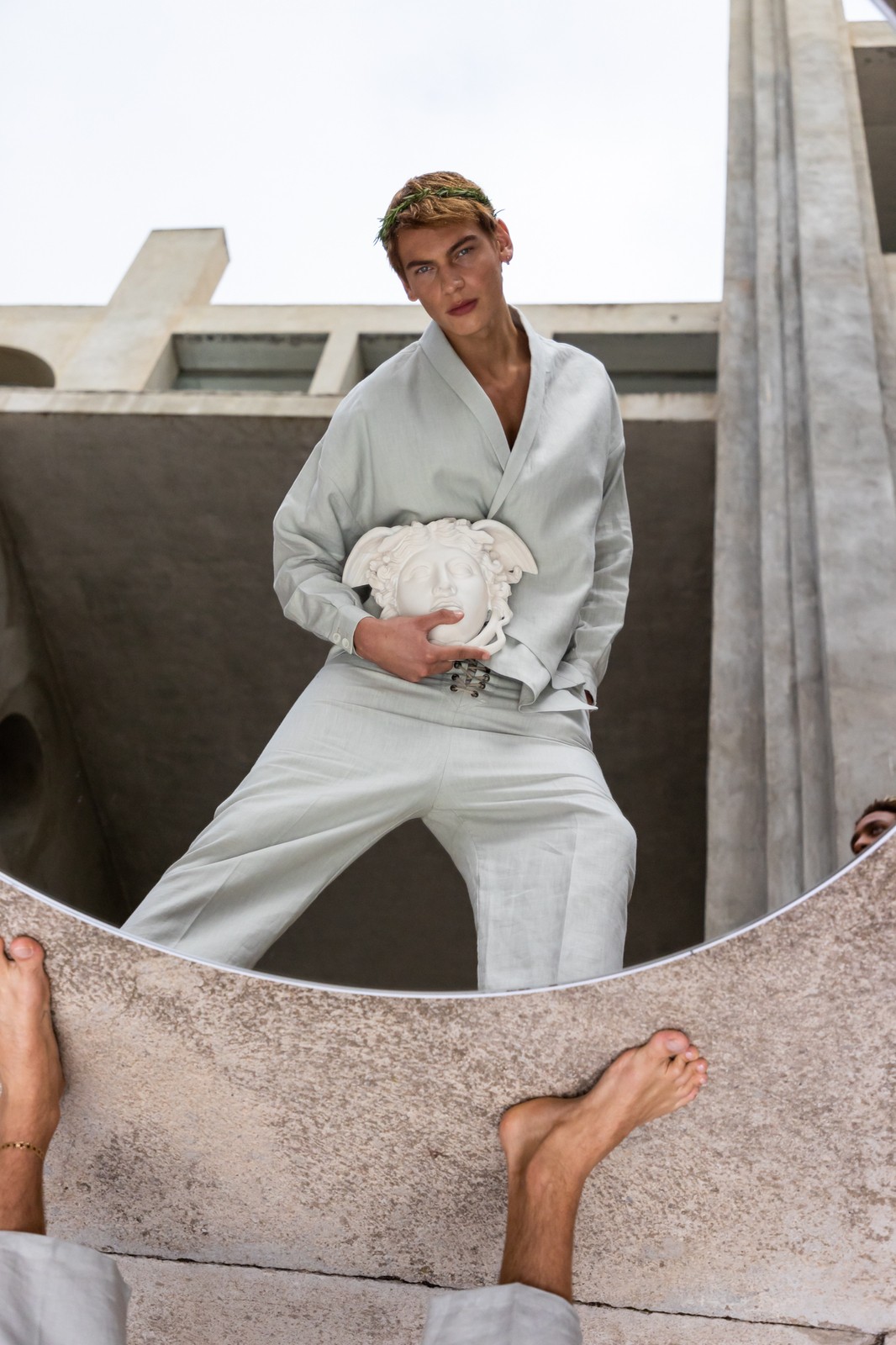A thermoregulating brand that tackles environmental and social issues
Júlia G Escribà produces everyday clothes which adapt to the body's temperature. The PCM (Phase Change Materials) technology allows garments to absorb, maintain and release heat.
Project details
- Main leader : Júlia G Escribà
- Type of initiative : Individual initiative (company, etc.)
- Localisation : Barcelona
- Date de début : juin 2021
Economy circular topics
- Extending useful service life
- Responsible consumption
- Eco-design
- Sustainable procurement
- Functional service economy
- Industrial and regional ecology
- Recycling
Júlia G Escribà (JGE) is a fashion company from Barcelona that creates genderless and timeless design garments using NASA thermoregulatory technology. The fabrics used manage to intelligently adapt to the temperature needed by the human body and provide benefits related to health and comfort.
Júlia Garcia Escribà started to think about this project at the age of 15 years old. Living in the mountains near Barcelona, she was already aware about environmental stakes and climate change. Moreover, Barcelona has a patrimonial heritage within the textile industry. Thus, it was obvious to her that she needed to combine those fields to create something useful and to reduce carbon emissions. Her overall goal was to reduce textile consumption by mixing environmental activism and her passion for textiles. She started to investigate and created her first thermoregulating clothes samples at 15. She formed the company in 2021 and collaborated with Outlast®, a technology originally developed for NASA that uses Phase Change Materials (PCM) which absorb, store and release heat for optimal thermal comfort. She is now investigating other technologies and has many ideas to develop more responsible and sustainable clothes consumption. JGE aims at being as circular as possible to avoid adding a negative impact to this market.
Qualitative benefits
- Reducing clothes consumption: JGE company creates thermoregulating clothes that adapt to body temperature. The first collection was in collaboration with Outlast®. PCM can store heat and release it slowly during cold weather. When it is cool, it can absorb heat instead of the body thus keeping us cool. In this way, there is no need for an extra jacket, hence it can reduce clothes.
- Extending garments’ lifespan: JGE garments are resistant and created to last. Garments are designed to be timeless to be worn in the long term.
- Avoiding plastic use: The collection is mostly made of cotton, hence avoiding micro plastics and non-biodegradable fabric.
- Reducing the environmental footprint: Reducing clothes need, textile production and non-biodegradable plastic is a big step towards sustainability in the textile industry. Also, each textile is certified. For each collaboration, the company is ensuring the textile has a low environmental impact.
- Complete traceability: The company wants to have perfect traceability to show consumers processes and prices at all steps in order to maintain transparency about everything from who is sewing to difficulties encountered. The goal is to spread awareness about the environmental impact of our clothes.
- Creating an inclusive brand: The collection is thought to be truly inclusive, thus avoiding bright colours and specific shapes. The company creates genderless clothes and that can be adapted to different contexts at work as well as for social life and more. More versatility for one garment means less clothes in total.
- Providing a sustainable delivery: Working on distribution impact is crucial as it is also a big part of the textile carbon footprint. Nowadays, it is possible to have a low impact delivery. JGE works on biodegradable packaging that can be planted in a garden. JGE also wants to make it realistic in terms of prices regarding what is currently on the market. Before offering delivery towards every country, JGE will make sure each city has a low impact delivery program.
Stages of the initiative
2022: Closing the investor round and the designed collection
2023: Launching of the e-commerce sale
Perspectives:
- Extending the life cycle: JGE is studying to give the opportunity to the consumer to return clothes when they don’t want to wear it anymore or the product is at the end of its life. They are also considering the reparability of garments and studying clothes that don’t need water, as well as a process to upcycle clothes.
- JGE is currently closing the investment brand to approach being the perfect circular brand.
- E-commerce clothes will be pre-soldl to enable consumers to see how it fits before buying.
- JGE wants to create a calculator to measure the carbon footprint of garments. Currently, there is no official and institutional calculator yet.
- JGE plans to create an immersive store to try technologies that are sold, to change the way consumers see clothes.
- JGE plans to create its own licences in an eco-design way.
- Investigating other technologies such as technologies providing vitamin C supplies.
Human resources
10 people, 2 are working full-time on the project
